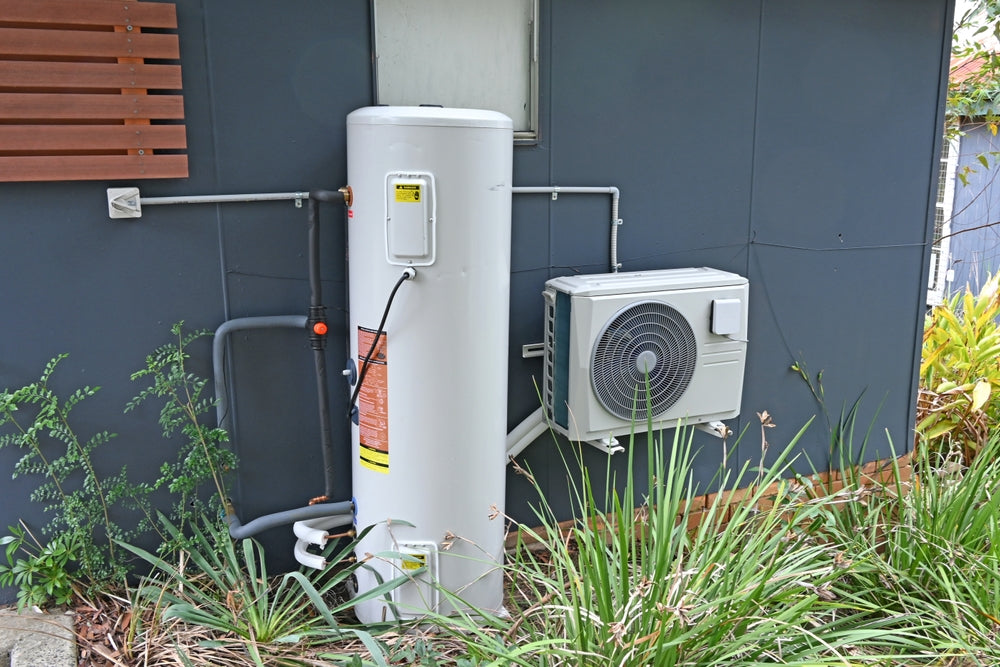
Water geysers are essential for providing hot water in households, especially during colder months. While they come with numerous benefits, there are also some drawbacks to consider before making a purchase.
This guide will walk you through the pros and cons of water geysers, helping you make an informed decision that suits your needs and budget.
1. Types of Water Geysers
Before diving into the pros and cons, it’s important to know the different types of water geysers available:
-
Electric Water Geysers
These are the most common types, using electricity to heat water. They are available in both instant and storage models, offering flexibility based on your usage. -
Gas Water Geysers
Gas geysers use natural gas or LPG to heat water. They are often more energy-efficient compared to electric models and provide continuous hot water. -
Solar Water Geysers
Solar geysers use solar panels to capture energy from the sun, making them environmentally friendly and cost-effective in the long term.
2. Pros of Water Geysers
Let’s start by exploring the advantages that water geysers offer.
a. Instant Hot Water Supply
One of the biggest benefits of water geysers, especially instant models, is their ability to provide hot water on demand. You don’t have to wait for a long time; the water heats up as soon as you turn on the tap. This is convenient for quick showers and washing dishes.
b. Energy Efficiency
Modern water geysers, particularly those with high energy ratings, are designed to be energy-efficient. Gas water geysers, for instance, consume less energy than electric ones, making them a cost-effective option for long-term use. Solar water geysers are also efficient as they rely on solar power, reducing electricity consumption significantly.
Tip:
Look for geysers with a high star rating, as they consume less energy and help you save on electricity bills.
c. Convenient and Easy to Use
Water geysers are user-friendly and come with various settings for temperature control. Most modern models have digital displays, making it easy to set the exact temperature you want. With remote control options available, some geysers even allow you to control them from your phone.
d. Cost-Effective for Long-Term Use
While the initial investment for water geysers, especially solar models, can be high, they are cost-effective in the long run. Gas and solar geysers, in particular, help reduce energy bills, making them a smart investment for homeowners looking to save on utility costs over time.
e. Space-Saving Options Available
Electric instant water geysers are compact and can be easily installed in small spaces like bathrooms or kitchens. Unlike traditional water heaters, they don’t require large tanks, making them suitable for apartments or small homes.
3. Cons of Water Geysers
While water geysers offer several benefits, they also have some disadvantages that you should consider.
a. High Initial Cost
The initial cost of purchasing and installing a water geyser can be high, especially for solar and high-capacity models. Although these costs may be offset by lower utility bills in the long run, the upfront investment can be a barrier for some homeowners.
Tip:
Compare prices and features of different models to find a geyser that fits your budget and long-term savings goals.
b. Maintenance Requirements
Water geysers, particularly storage models, require regular maintenance. Mineral buildup and corrosion can occur, especially in areas with hard water, affecting the performance and lifespan of the unit. Maintenance tasks like descaling and checking the thermostat are necessary to ensure the geyser functions efficiently.
Solution:
Consider installing a water softener if you live in a hard water area to reduce mineral deposits and extend the life of your geyser.
c. Limited Hot Water Supply with Storage Models
Storage geysers come with a fixed tank size, which means they store only a certain amount of hot water. If you use up the stored water, you’ll need to wait for the tank to heat up again. This can be inconvenient for larger households with higher hot water demands.
Tip:
Opt for a geyser with a larger tank capacity if you have a big family or high hot water usage.
d. Dependency on Electricity or Gas Supply
Electric water geysers rely on a stable electricity supply, while gas models depend on a steady gas supply. In areas with frequent power outages or gas shortages, this can be a major drawback. Solar geysers, on the other hand, require consistent sunlight, making them less effective during cloudy or rainy days.
e. Safety Concerns
Water geysers, if not properly installed or maintained, can pose safety risks. Electric models may face issues like electrical leaks, while gas models carry the risk of gas leaks or explosions. Even solar geysers, if not installed correctly, can lead to water damage or overheating.
Solution:
Always have a professional install your water geyser and schedule regular maintenance checks to ensure safety and optimal performance.
4. Factors to Consider Before Buying a Water Geyser
Now that you know the pros and cons, here are some key factors to keep in mind when choosing the right water geyser for your home.
a. Household Size and Hot Water Needs
Your household size and daily hot water usage will influence the type and capacity of the geyser you choose. Small families or single-person households may find instant electric geysers sufficient, while larger families might need storage or gas models with a higher capacity.
b. Water Quality in Your Area
If you live in an area with hard water, you may need a geyser with anti-corrosion features or install a water softener. Hard water can cause scale buildup in the geyser, reducing its efficiency and lifespan.
c. Energy Efficiency Ratings
Choose a water geyser with a high energy efficiency rating. Models with a 4-star or 5-star rating consume less power, helping you save on electricity bills. Gas and solar geysers are also great alternatives if you want to minimize your energy consumption.
5. Tips for Maintaining Your Water Geyser
Proper maintenance is essential to keep your water geyser running efficiently and extend its lifespan. Here are some tips:
a. Regular Descaling
If you have a storage water geyser, it’s important to descale the tank periodically. This helps remove mineral buildup, which can affect heating efficiency and cause damage over time.
b. Check the Thermostat Settings
Set the thermostat at an optimal temperature, usually between 50-60°C, to ensure efficient energy use and avoid overheating. Regularly check if the thermostat is working properly to maintain a safe and consistent hot water supply.
c. Inspect for Leaks and Corrosion
Inspect your water geyser for any signs of leaks or corrosion. This is especially important for gas geysers, where gas leaks can pose serious risks. If you notice any damage, call a professional to inspect and repair the unit.
6. The Best Geyser Type for Your Needs
Choosing the right type of geyser depends on your specific needs and conditions:
-
Electric Geysers
Best for small households or apartments with moderate hot water needs. They are easy to install and maintain, but they rely on electricity, which may not be ideal for areas with frequent power outages. -
Gas Geysers
Perfect for larger families or those who need a continuous supply of hot water. They are energy-efficient but depend on a steady gas supply, making them less suitable for areas without reliable gas service. -
Solar Geysers
Ideal for those looking for an eco-friendly option. They offer long-term savings but require proper installation and consistent sunlight to be effective.
Conclusion
Water geysers offer the convenience of instant hot water, but it’s important to weigh the pros and cons before deciding which type is best for your home. Understanding your household’s hot water needs, energy preferences, and budget will guide you in choosing the most suitable option. '
Whether you prefer an electric, gas, or solar model, ensuring regular maintenance and proper installation will help maximize efficiency and safety.








